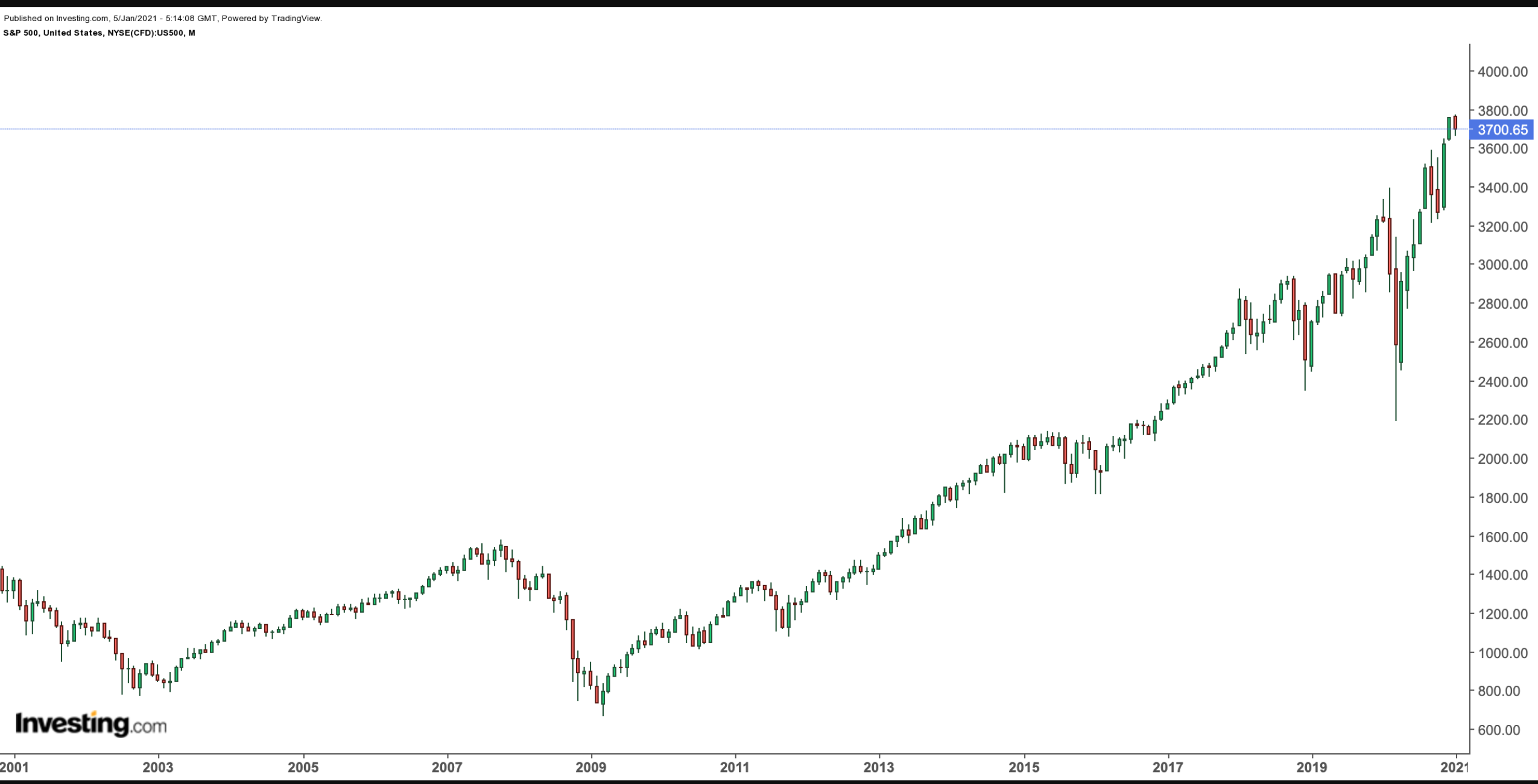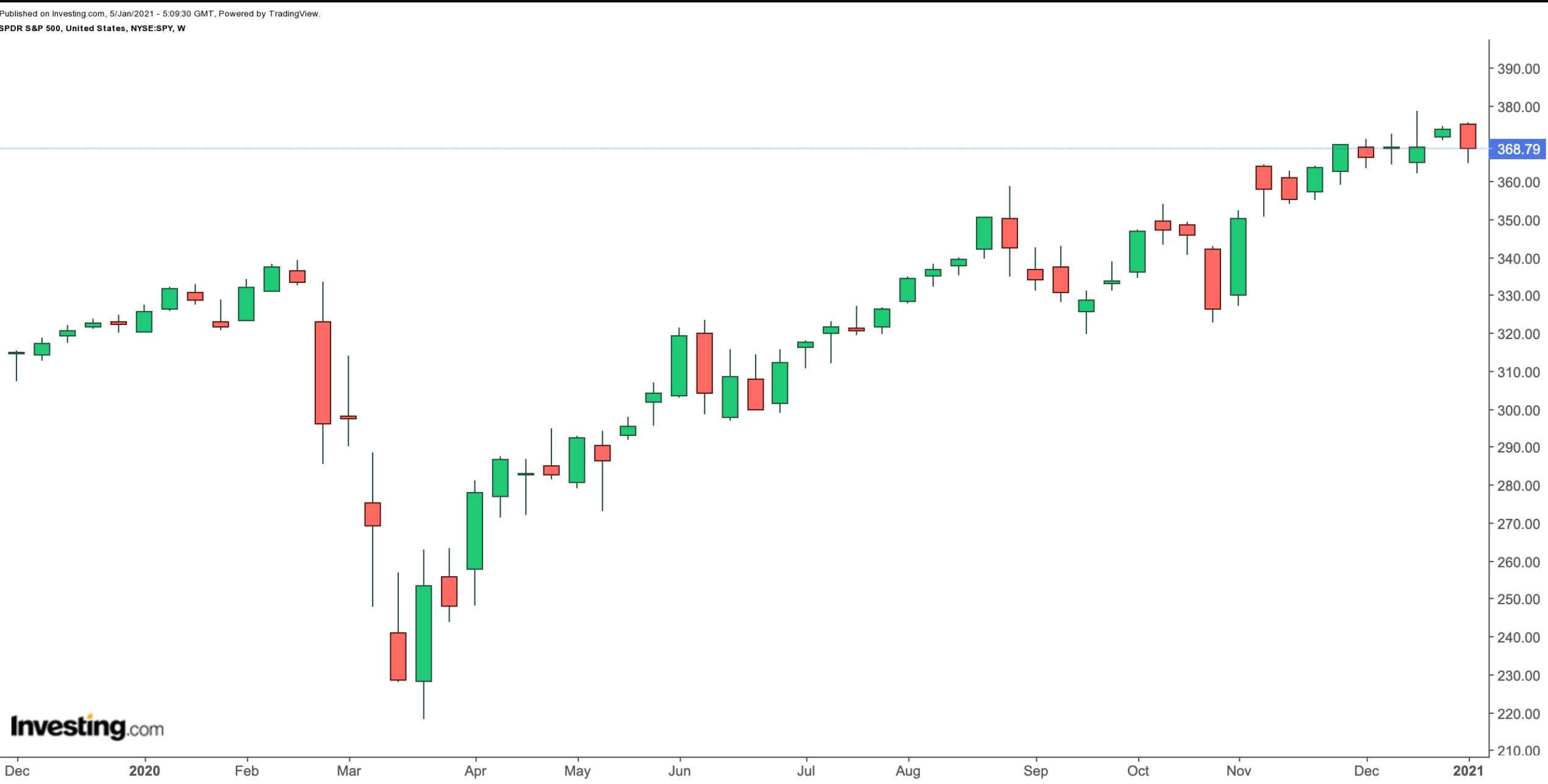As we turn the calendar to 2021, a large number of people are wondering if they can start investing for the long-term with a small amount of savings. The answer is yes.
New or young investors who would like to dip their toes into the world of investing could consider buying an exchange-traded fund (ETF) that could be a proxy for the stock market. Let's take a look.
Time Is Money
It's anybody's guess what's in store for equities in the coming quarters. Yet, we believe time in the market is one of the essential elements of successful investing for retail investors.
The concepts of time and compound interest go together. An investment needs time to grow, and when given enough time, even modest savings in equity markets could add up to substantial amounts.
We would like to remind readers of the Rule of 72, which calculates how fast an investment could double in value with the impact of compounding. The rule suggests taking the number 72 and divide it by the annual return (percent). The answer to that equation provides you with the amount of time for the investment to double.
Let's say an investment returns 10% a year. Thus 72/10 = 7.2. It would take about seven years for the investment to double in value.
An index like the S&P 500 usually tracks returns on a buy-and-hold basis. In 2020, the S&P 500, a gauge for the stock performance of the largest publicly-traded 500 companies in the US, returned over 16%. We don't know what the returns on the S&P will be in 2021, the index could even decline.
However, when we examine the S&P's returns over the decades, we can see that the number of positive years far outweighs negative years. It would be correct to say that annualized returns over time are around 7%-10% for the benchmark. Those investors who also invested the dividends would have seen their capital increase faster.

Therefore, today we'd like to introduce an ETF that tracks the S&P 500, namely the SPDR S&P 500 (NYSE:SPY). An ETF, which typically follows an index, is a basket of securities—shares, bonds, commodities, currencies or some combination of these assets.
Different focuses offered by ETFs make it relatively easy to find a fund to fit investment objectives. SPY could be an appropriate first fund for many new investors planning to put a small amount of capital into equity markets.
SPDR S&P 500 ETF
Current Price: $368.79
52-Week Range: $218.26 - $378.4
Dividend Yield: 1.5%
Expense Ratio: 0.0945% per year or less than $1 on a $1,000 investment
Businesses in the S&P 500 index comprise around 80% of the overall US stock market's value. It is a capitalization-weighted index. Thus, large firms constitute a more significant portion of its value and, therefore influence the performance of the index. With a market cap of over $2.26 trillion, Apple (NASDAQ:AAPL) heads the S&P 500 list.

It should be noted that the Street usually holds large-caps in high esteem. In other words, even when such shares come under pressure from time to time, they usually are among the first ones to recover from market declines. 2020 would possibly act as a testament to this view.
As part of a diversified portfolio, many investors want some exposure to the S&P 500, i.e., to US public companies' profitability and growth. Therefore, they invest in the SPDR S&P 500 ETF, which has the highest daily trading volume among ETFs. It was also the first ETF listed stateside when it started trading in January 1993. Assets under management are about $330 billion.
Apple, Microsoft (NASDAQ:MSFT), Amazon (NASDAQ:AMZN), Facebook (NASDAQ:FB) and Tesla (NASDAQ:TSLA), which joined the S&P 500 index in December, are the ETF's five largest names, comprising close to 22% of the SPY's roster.
SPY holds 505 stocks (and not 500) as several companies have multiple share classes. Examples include Alphabet (NASDAQ:GOOGL) (NASDAQ:GOOG) and Berkshire Hathaway (NYSE:BRKa) (NYSE:BRKb).
Like the S&P 500 index, SPY returned 16% over the past year. Many stocks are close to record highs. Trailing P/E and P/B ratios of 24.74 and 3.98, respectively, suggest a valuation on the expensive side.
In mid-January, a new earnings season will start in the US. Financial companies are typically the first to announce quarterly metrics, followed by technology and other sectors. It may not be wrong to assume increased volatility and even short-term profit-taking could hit several of the names with the highest weighting in SPY.
Yet, such a pullback would also present a good dip-buying possibility for retail investors with a long-term perspective, making SPY a cornerstone portfolio holding.
